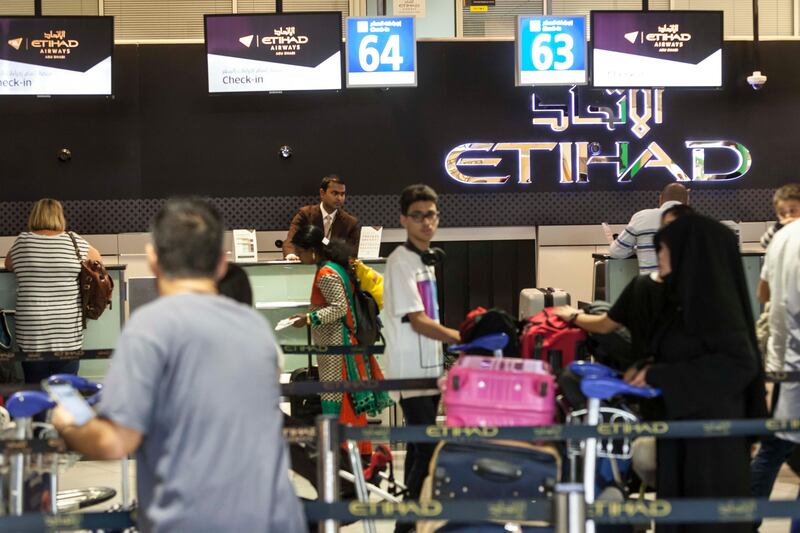The ban on carrying laptops and other devices on to US-bound flights provided a brief respite from the demands of modern-day jobs. But many travellers were frustrated - not least those that could bill clients for work done at 30,000ft.
So it was with relief that passengers arrived at Abu Dhabi International Airport yesterday, after the laptop ban was lifted last week.
“I can’t afford an entire day off from working,” said Rob Montagu-Williams.
“It’s a case of using your time more efficiently. Besides there’s only a certain amount of films you can watch before you get bored.”
In an age where businesses pay for executives to go through digital detoxes, you may think that travellers would dread the lift of the laptop ban and the return of the working flight to the US.
But not being able to work, he said, would only stress him out as he felt the time was being wasted.
In March, the US banned travellers flying on direct planes from 10 airports, mostly from the Arab world, based off intelligence that laptops are being used to plot terror attacks.
Despite the hub being one of the safest airports, Abu Dhabi International Airport was on that list.
Mr Montagu-Williams, whose business is based in the UAE, travelled during the laptop ban and said the experience was “pretty painful.”
Often the Brit would be forced to travel over the weekend to avoid any downtime that might have been incurred as a result of flying late.
“It was only OK if you resigned yourself to the fact but a whole working day gone and getting nothing done,” he said.
The hub became the first airport out of the 10 in the region to break free from the ban imposed by the US Department of Homeland Security. They have since issued new security requirements that includes enhanced screening of passengers and devices coming from 280 airports worldwide.
Robert Koval, managing director of Teambase, a software services company based in Dubai, did not plan on having the time to work but is relieved to be allotted the convenience.
“We got lucky, we had this plan for quite some time, having the ability to have a laptop on board is definitely very important,” he said.
His colleague, Jan Glonack, travelled during ban and is not only relieved to be able to do some work but also happy to make sure that his laptop, his most important working tool, is kept safe.
“I don’t have to check it into a big bag and not know what will happen, it wasn’t great but there was no other choice,” he said of his experience of flying during the ban.
“This is a business trip, it’s a regular working week, so it’s convenient that we can work, so we can spend our time efficiently.”
For others yet, the issue of having their laptop is a matter of security.
“I can’t afford to have it out of my sight, I just feel more comfortable having the laptop with me, if I lost it, it would be devastating for both me and my company,” said an American, who asked not to be named.
As someone who works in security, he understands of the importance of protecting sensitive data.
“Too much sensitive material is on that laptop, and I can’t jeopardise it by having it place in a check-in bag that could - as we all know - get lost,” he said.
Dubai International and Doha International airports also had their bans lifted last week.






